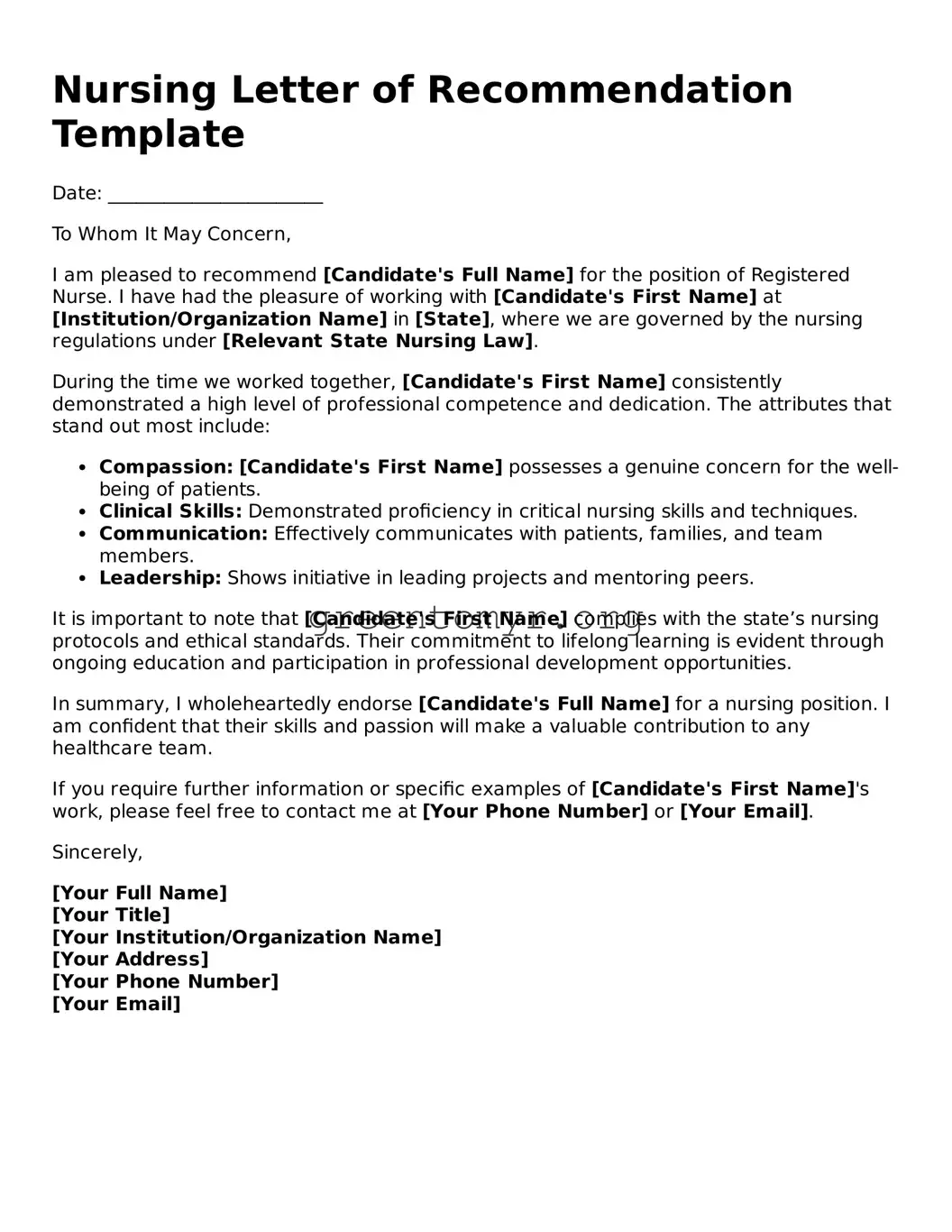Nursing Letter of Recommendation Template
Date: _______________________
To Whom It May Concern,
I am pleased to recommend [Candidate's Full Name] for the position of Registered Nurse. I have had the pleasure of working with [Candidate's First Name] at [Institution/Organization Name] in [State], where we are governed by the nursing regulations under [Relevant State Nursing Law].
During the time we worked together, [Candidate's First Name] consistently demonstrated a high level of professional competence and dedication. The attributes that stand out most include:
- Compassion: [Candidate's First Name] possesses a genuine concern for the well-being of patients.
- Clinical Skills: Demonstrated proficiency in critical nursing skills and techniques.
- Communication: Effectively communicates with patients, families, and team members.
- Leadership: Shows initiative in leading projects and mentoring peers.
It is important to note that [Candidate's First Name] complies with the state’s nursing protocols and ethical standards. Their commitment to lifelong learning is evident through ongoing education and participation in professional development opportunities.
In summary, I wholeheartedly endorse [Candidate's Full Name] for a nursing position. I am confident that their skills and passion will make a valuable contribution to any healthcare team.
If you require further information or specific examples of [Candidate's First Name]'s work, please feel free to contact me at [Your Phone Number] or [Your Email].
Sincerely,
[Your Full Name]
[Your Title]
[Your Institution/Organization Name]
[Your Address]
[Your Phone Number]
[Your Email]
